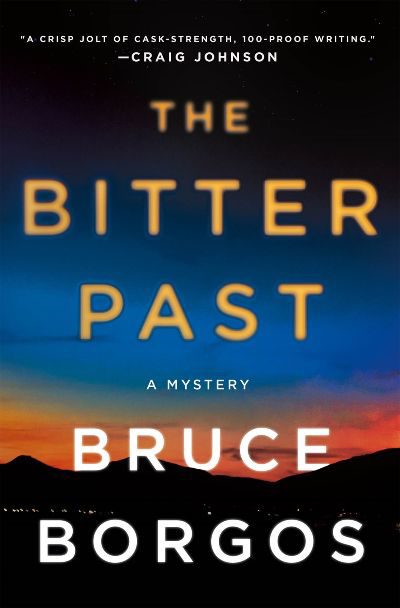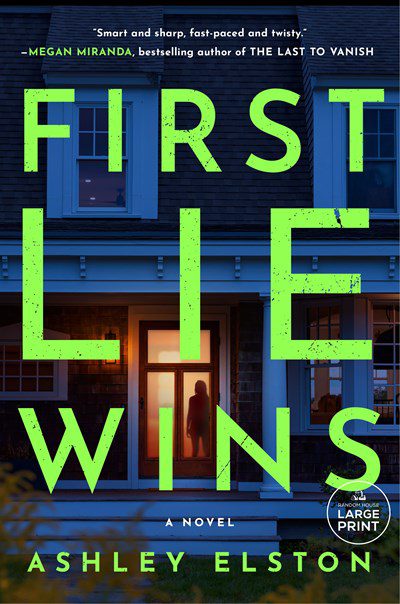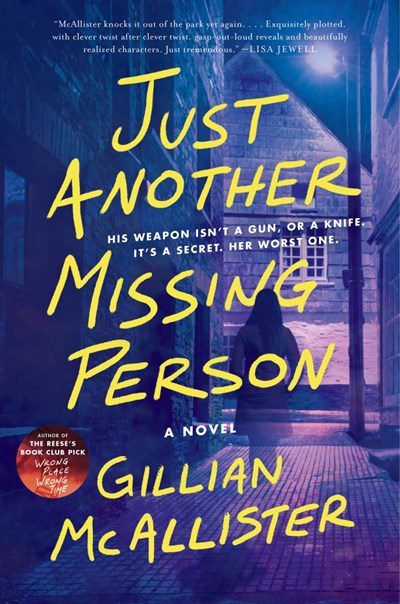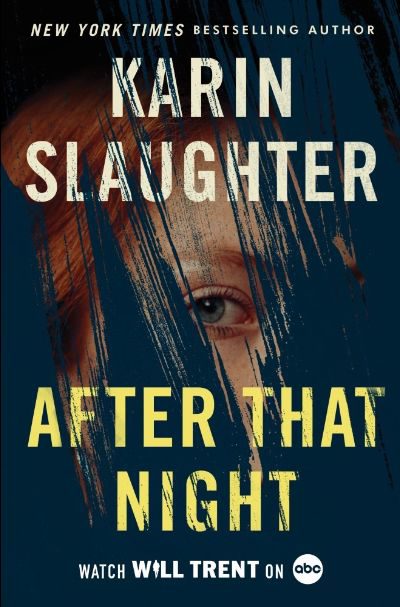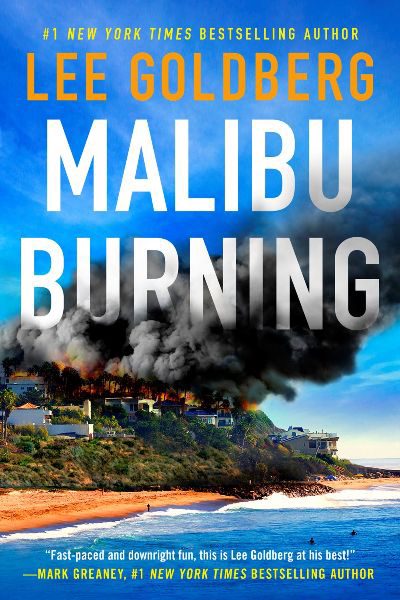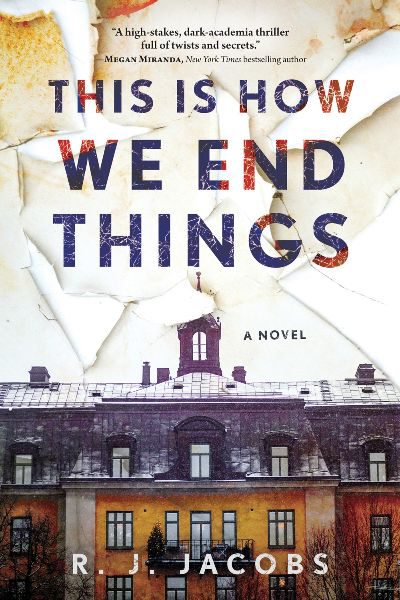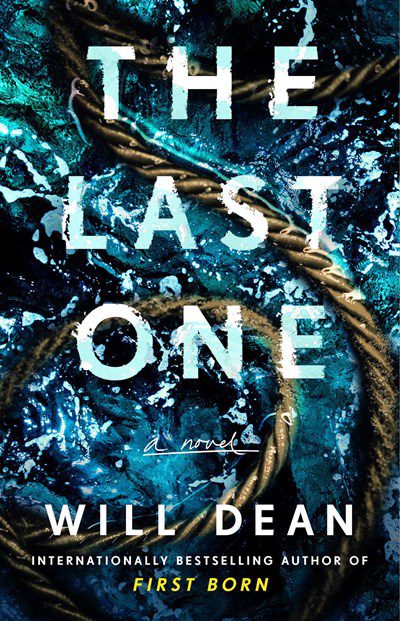“Everybody knows everything about you in this stupid town. And they know nothing.” What people in Madeline Martin’s rural New York town know about her is that she’s the daughter of the town’s longtime, beloved sheriff and she owns The Next Chapter, her dream bookstore. They also know, but rarely mention, that she survived a brutal attack ten years before, one that saw her friend Steph murdered and two other friends, sisters Ainsley and Sam, disappear. What they don’t know is that Maddie’s never recovered emotionally and longs to know what happened to her friends. There’s still no word on the missing teens, and it’s a few days before the anniversary of the attack, which also means Christmas is a few days off and the bookstore is humming. Superstar author Harley Granger chooses this as his moment to visit and start his research on whether the man doing time for the crime is guilty, what happened to Ainsley and Sam, and, most urgently, where a newly disappeared exotic dancer could be. All breathlessly documented on social media, of course. Fans of Unger will know her thrillers match top-notch writing with gripping stories; this one won’t disappoint in that regard and offers the bonus of a satisfying family story in Maddie and her father.
Thrillers
The high desert of eastern Nevada is Borgos’s setting for this series debut, and it opens with the most violent death Sheriff Porter Beck has seen. A retired FBI agent, Ralph Atterbury, looks to have been tortured for hours, his skin removed in strips and his nipples blowtorched. It can’t be a routine break-in, but what could the man have done that would inspire such rage? Flashing back to supposedly a more apple-pie time, Nevada in the Cold War, we meet Freddie Meyer, a young man who’s humble enough to go steady with Kitty Ellison, a bookish girl who “wasn’t the most striking” of her friends. In due course, Kitty’s physicist father helps Freddie get a job—he’s just so gosh-darn grateful!—at the nearby atomic testing site’s top-secret project. Readers are let in on the audacious, almost unbelievable plan that unfolds, one that Beck slowly uncovers as he seeks the identities of Atterbury’s killer and a Russian spy who he believes worked at the testing site all those years ago. Beck has the nice-guy relentlessness that readers love in an investigator. His love interest, present-day FBI agent Sana Locke, adds wiles and beauty, and the Cold War storyline is gripping. I can’t wait for the next from Borgos.
Ryan Summer helps a young woman named Evie Porter with a flat tire, and shortly afterward, they are inseparable in Elston’s twisty thriller. He falls head over heels for her, but in Evie’s case, the relationship is an assignment from her mysterious boss she has never seen, Mr. Smith. Her orders are to get close and obtain information about Ryan’s business. As time passes, she finds herself falling for her mark, and one evening, while meeting some of Ryan’s friends, she meets Lucca Marino. Evie’s real name is Lucca Marino, and this woman is using Evie’s real-life identity and background. It’s clear her boss has put a target on her back, and she will have to use all her manipulative skills to stay alive, even if that means she has no realistic chance of returning to her old life. Retirement is not an option. Elston has crafted a story that stretches credulity a bit, but works. Readers will be dying to finish this fast enough so they can decipher what’s going on, and it’s a guarantee that they’ll find the truth unexpected. Fans of Hank Phillippi Ryan and Megan Miranda should seek this out.
O’Connor’s second tale starring rural Irish veterinarian Dimpna Wilde at first has all the markings of a cozy. A female protagonist whose job is a magnet for drama, animals—including a talking African grey parrot called Bette Davis,who plays a major role in the story—and a love interest who’s in law enforcement. But cozies usually involve a sanitized crime, and this is where O’Connor takes a decided swerve out of the gentle side of the genre. The murder mystery that Dimpna finds herself enmeshed in is the killing of a young woman, Brigid, who early in the story shows up at the vet clinic with an injured animal. It’s a hare that has a cut on its leg from someone, Brigid says, trying to remove its foot. The gruesome motif is repeated when Dimpna finds Brigid tied to a tree, dead and with her hand cut off. At the same time, chalked graffiti around the town asks, “Who put Bella in the witch elm?”, just one of the intertwined puzzles facing Dimpna and the man she’s falling for, Inspector Cormac O’Brien, as they investigate the town’s many intriguing residents and visitors. While this absorbing story stands well on its own, you’ll want to go back to the first in the series, No Strangers Here, to spend more time with this smart, kind vet and her knack for attracting trouble.
What do we know about lying? That one lie often begets others. That lies find a way of escaping their boundaries. And that knowledge of a lie can give you power over the liar. DCI Julia Day is leading the investigation into the case of a young woman who’s gone missing. A brilliant detective, Julia is slightly suspicious of this case—the pieces don’t quite fit together—when she’s carjacked and forced to agree to lie about the alleged perpetrator. Except the story hardly ends there. As the investigation unravels, more cold cases come alive and more lies are exposed. McAlister brilliantly leads us into the lives of parents, driven mad by grief, and Julia’s own relationship with her daughter, the well-spring of so many falsehoods. Readers will appreciate a police procedural that is deeply embedded in character. That moves adroitly between the lives of cops and civilians. And that explores the difficulty of making sound moral choices. McAlister is the author of Wrong Place Wrong Time, a Reese’s Book Club Pick.
Nothing was ever the same for Sara Linton after the night she was attacked. Though the police apprehended the culprit, Sara has struggled to deal with the trauma ever since. She’s now engaged to GBI Special Agent Will Trent, and they are crafting wedding plans. When Sara promises to pursue justice for another young woman, who dies, she has no idea that this will force her to confront the darkness and memories she has been avoiding for years. Will wants to help, and what they uncover leads to connected attacks with ties to recent incidents. Slaughter is a master of telling a story with horrific elements and spinning it to be both clinical and compelling. She dives into the characters we love and provides more insight into what has made them who they are, which makes them come alive on the page. The ABC television series Will Trent was recently renewed for a second season, and its popularity will steer readers to pick up this book. Whether a newcomer to the series or a fan who has read the previous entries, readers will find this one of the best to date.
You’ll find it hard not to root for both sides in two-time Edgar winner Goldberg’s latest, which pits arson investigators against a Robin Hood-like ex-con who sets a wildfire to consume what his enemies hold most dear: their possessions. The investigators are Walter Sharpe, a veteran of California fires who’s nicknamed Sharpei for his don’t-care physique and his newbie partner, Andrew Walker, who’s eight-months-pregnant wife begged him to take this job so that he will get home for dinner every night. But things get, ahem, hotter than the duo plans when con-man Danny Cole is released from his time in prison, which he spent as a firefighter, with years of nothing but planning under his belt. While this is a series debut, the fire depicted is the same one that featured in the author’s Lost Hills; fans of that book should know that this one looks at the inferno from a different perspective and involves a different crime story. Both fans and newcomers to Goldberg’s work will enjoy the fast-moving, at times terrifying, tale and its close look at firefighting and arson-investigation techniques. A bonus is the companion buddy story featuring likable new police-procedural partners and their unusual focus
A toxic workplace implodes as Jacobs (Always the First to Die) puts deception and its fallout under the microscope. The workplace, which darkly echoes the setting of the recent Netflix series The Chair, is North Carolina’s Dorrance University, but more specifically a six-person project within its psychology department. A professor and five graduate students, who embody the worst of what happens when coworkers see one another as family, are conducting an odd experiment. They fool students into thinking they are missing credits and must participate in an (unknown to them, mock) psychology study to graduate. The real purpose of the interaction is to gauge how willing students will be to lie when under pressure. That deception is just the beginning of the lies and manipulations that emerge in this story after one of the too tightly knit group is murdered, with further violence not far behind. Jacobs succeeds wonderfully in portraying a hothouse-type atmosphere in which everyone’s a suspect and the suspicions are just the latest inspiration for backbiting, accusations, and pettiness. Readers won’t see the ending coming and will relish the red herrings and twists along the way.
A brilliantly taut novella set over Christmas in 1989 England, revisited from the perspective of present-day New York. Ashley Smith is an American college student spending her junior year in London. An orphan, she has no holiday plans, until another student, Emma Chapman—they’re barely friends—invites her to her family’s manor house in the country. For an American, it’s pretty much “cozy Cotswold heaven”: a rambling home filled with cousins and friends, pine boughs and holly, smelly dogs and board games, plenty of alcohol, nightly hikes to the village pub, and absolutely no heat. Much of the narrative comes through Ashley’s diary, which is a real hoot in its Bridget Jones-ness, especially when she’s reporting on Adam, Emma’s supremely handsome brother. Except things start to get weird. A strange, little man is seen lurking on the wooded shortcut to the pub. Then Ashley learns that Adam is suspected of murdering a local girl several months before—but proof is lacking. Despite being short enough to read in one sitting, maybe with a pot of tea at the midpoint, this skillfully constructed work of crime fiction still manages to provide plenty of shock and awe.
Thrillers, for me, are like palate cleansers. Every few weeks, I need to immerse myself in an action-packed, plot-driven narrative full of fear, anxiety, and tension that pushes me to read at full throttle. But I was in no way prepared for the absolute terror of The Last One. Fifty-something Caz wakes up on an ocean liner that’s hugely similar to the Queen Mary 2—it’s even on a transatlantic voyage, QM2’s signature trip—only to find that her partner, Pete, is missing. But that’s just the beginning. It seems that every other passenger and the entire crew is AWOL. The idea of rattling across the Atlantic in a deserted ocean liner is scary enough, but when Caz discovers three more passengers, things take a decidedly darker turn. What’s incredible is how far Dean goes with his storyline, pushing relentlessly to up the fear factor, creating one scenario more terrifying than the last. At the same time, we learn about Caz’s troubled family, and what in her past helps to keep her alive in the present. One wild ride that is not to be missed.


